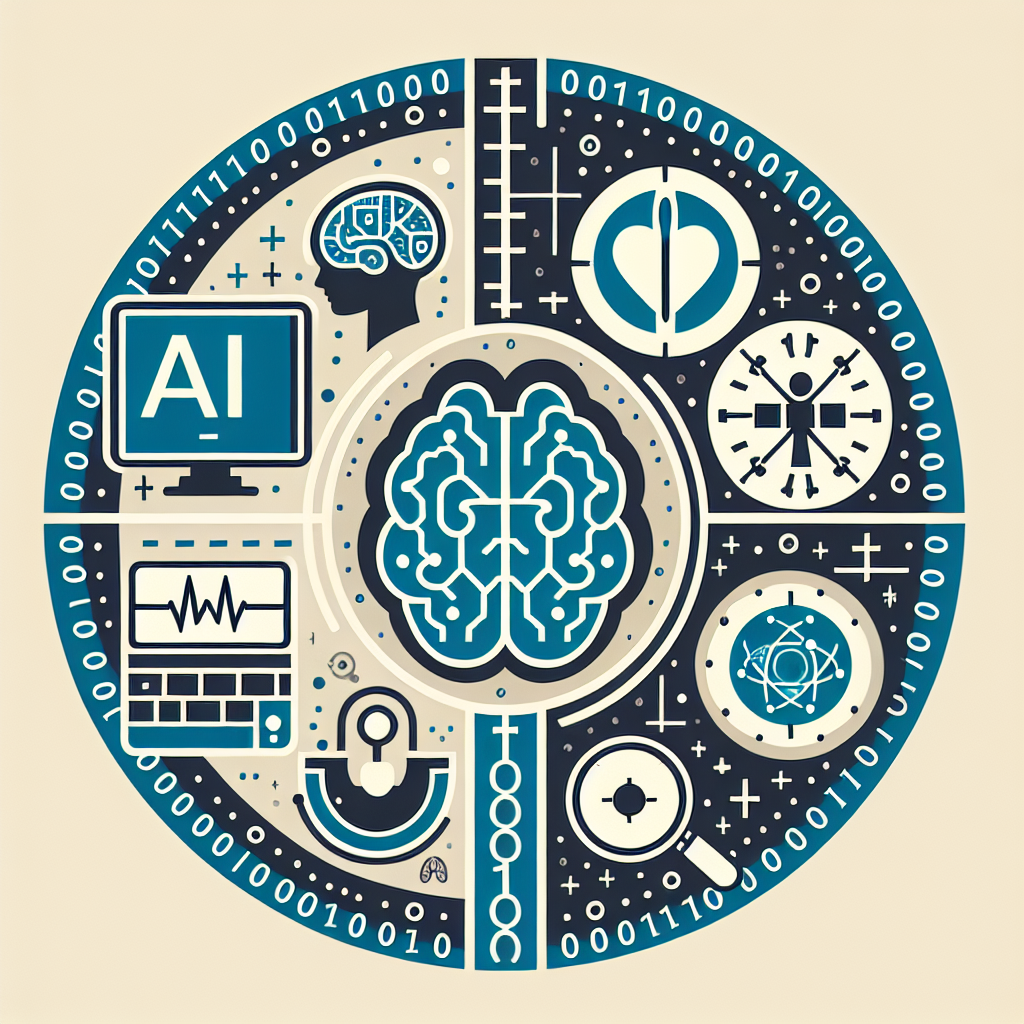Artificial Intelligence (AI) has revolutionized the field of medical imaging, providing doctors with powerful tools to diagnose and treat patients more effectively. However, as AI becomes more prevalent in healthcare, there are important ethical considerations that must be addressed to ensure the responsible and ethical use of this technology.
Ethical considerations in AI medical imaging encompass a wide range of issues, including patient privacy, bias in algorithms, accountability, and the impact on healthcare professionals. In this article, we will explore these ethical considerations and discuss how they can be addressed to ensure that AI medical imaging benefits patients while upholding ethical standards.
Patient Privacy
One of the primary ethical considerations in AI medical imaging is patient privacy. Medical imaging data contains sensitive information about a patient’s health, and it is important to ensure that this data is protected and used responsibly. AI algorithms that analyze medical imaging data must be designed with privacy in mind, ensuring that patient data is anonymized and securely stored.
In addition, healthcare providers must have policies and procedures in place to ensure that patient data is only accessed by authorized personnel and used for legitimate medical purposes. Patients must also be informed about how their data will be used and have the opportunity to consent to its use in AI algorithms.
Bias in Algorithms
Another ethical consideration in AI medical imaging is the potential for bias in algorithms. AI algorithms are trained on large datasets of medical imaging data, and if these datasets are not representative of the population, the algorithms may produce biased results. For example, if a dataset used to train an AI algorithm contains data primarily from a specific demographic group, the algorithm may not perform as well on patients from other demographic groups.
To address this issue, healthcare providers must ensure that the datasets used to train AI algorithms are diverse and representative of the population. This may require collecting data from a wide range of patients and ensuring that the data is balanced in terms of demographic factors such as age, gender, and ethnicity.
Accountability
Accountability is another important ethical consideration in AI medical imaging. When errors occur in medical imaging diagnosis, it can have serious consequences for patients. It is essential that healthcare providers have mechanisms in place to ensure that AI algorithms are accountable for their decisions and that errors are detected and corrected.
One way to ensure accountability in AI medical imaging is to have human oversight of the algorithms. While AI algorithms can analyze medical imaging data quickly and accurately, they are not infallible, and human experts are still needed to interpret the results and make clinical decisions. Healthcare providers must have processes in place to review the output of AI algorithms and ensure that they are accurate and reliable.
Impact on Healthcare Professionals
The use of AI in medical imaging also raises ethical considerations regarding the impact on healthcare professionals. AI algorithms can perform tasks that were previously done by radiologists and other healthcare professionals, leading to concerns about job displacement and the de-skilling of healthcare workers.
To address these concerns, healthcare providers must ensure that AI is used to augment, rather than replace, the skills of healthcare professionals. AI algorithms can assist healthcare professionals in interpreting medical imaging data and making clinical decisions, but ultimately, it is the healthcare professionals who are responsible for diagnosing and treating patients.
Additionally, healthcare providers must invest in training and education programs to ensure that healthcare professionals are equipped with the skills and knowledge needed to work effectively with AI technology. By supporting healthcare professionals in adapting to the use of AI in medical imaging, healthcare providers can ensure that the technology benefits both patients and healthcare professionals.
Frequently Asked Questions
Q: How can healthcare providers ensure patient privacy in AI medical imaging?
A: Healthcare providers can ensure patient privacy in AI medical imaging by anonymizing patient data, securely storing data, and implementing policies and procedures to restrict access to patient data to authorized personnel.
Q: How can bias in algorithms be addressed in AI medical imaging?
A: Bias in algorithms can be addressed by ensuring that datasets used to train AI algorithms are diverse and representative of the population. Healthcare providers must collect data from a wide range of patients and balance the data in terms of demographic factors.
Q: How can accountability be ensured in AI medical imaging?
A: Accountability in AI medical imaging can be ensured by having human oversight of the algorithms and processes in place to review the output of AI algorithms. Healthcare providers must have mechanisms to detect and correct errors in AI algorithms.
Q: What impact does AI have on healthcare professionals in medical imaging?
A: AI in medical imaging can impact healthcare professionals by augmenting their skills and assisting in interpreting medical imaging data. Healthcare providers must ensure that healthcare professionals are trained and supported in working effectively with AI technology.
In conclusion, ethical considerations in AI medical imaging are essential to ensure that this technology is used responsibly and ethically. By addressing issues such as patient privacy, bias in algorithms, accountability, and the impact on healthcare professionals, healthcare providers can harness the power of AI to improve patient care while upholding ethical standards. Through thoughtful consideration and proactive measures, AI medical imaging can benefit patients, healthcare professionals, and society as a whole.

